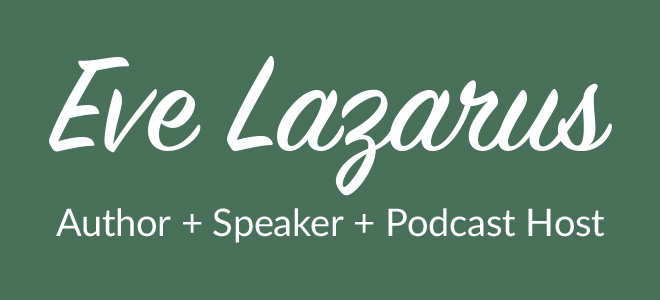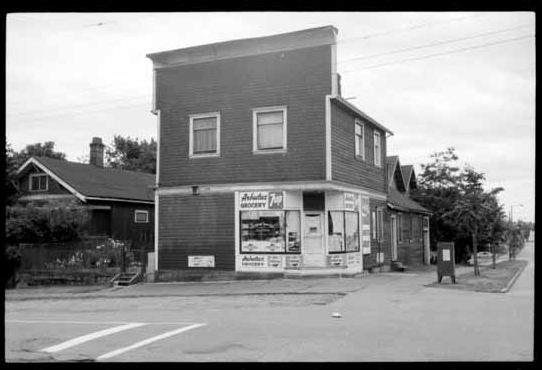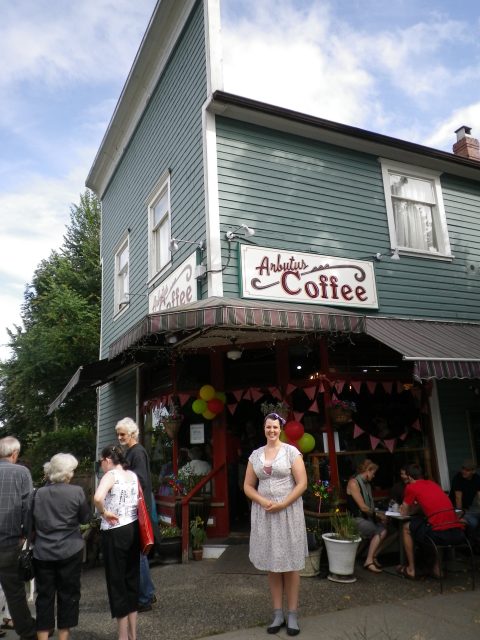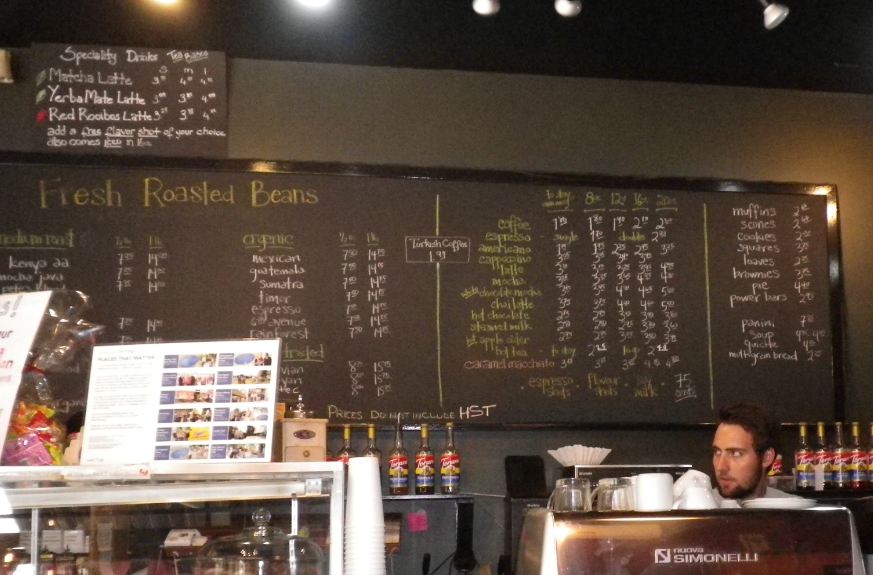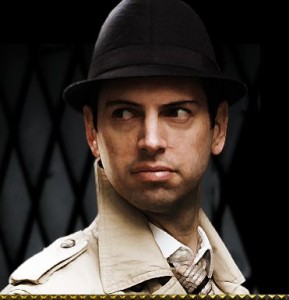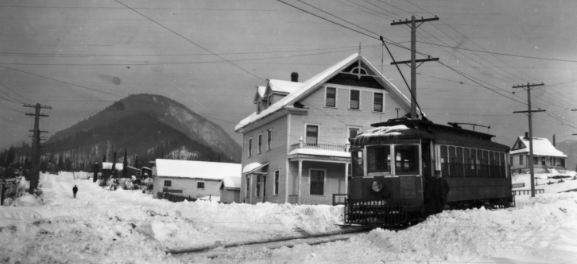
The large house at the corner of Lynn Valley and Hoskins Road has always intrigued me, so I dropped into the Community Archives last week to see what I could find out about it. Daien Ide, found this great photo taken around 1912, when the street car ran from the bottom of Lonsdale Street to the top of Lynn Valley Road—where our End of the Line general store now sits.
There’s not a lot of information about the former hotel on file. According to Walter Draycott’s book, Early Days in Lynn Valley, it was built by Harry Holland as the Lynn Valley Hotel in 1909.
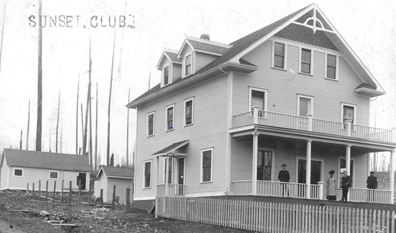
Harry’s intention to brew and sell beer on the premises was apparently thwarted by Presbyterian sensibilities in the area. When he couldn’t get a liquor license, he supposedly ran a “dry” hotel catering to tourists visiting Lynn Canyon Park and the suspension bridge. Doesn’t sound like a lot has changed here in over a century.
City directories show Harry as the proprietor with at least one resident—Henry Eastcott, a master mariner. Sharon Proctor writes in her book Time Travel in North Vancouver that it also housed workers employed by the municipality and the lumber companies, until the hotel’s sale in 1923. The hotel then disappears from the street directory for a number of years, and pops up again as a boarding house run by a Mrs. A.E Luck prior to World War 11. In 1944 it’s listed as the Dovercourt Rest home and remains a rest home of some sort until well into the 1990s.
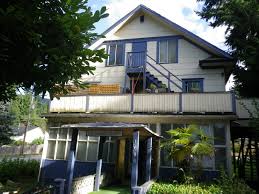
I took a walk past there today and snapped off this photo. The sign at the front says “Dovercourt,” and the old building is looking in need of some love, but at least it’s one of the 152 sites in the district slated to go on the district’s new Heritage Register.
© All rights reserved. Unless otherwise indicated, all blog content copyright Eve Lazarus.
